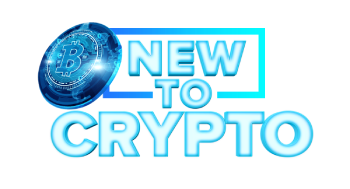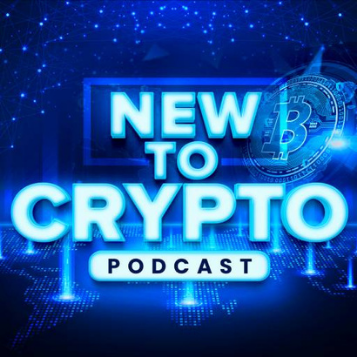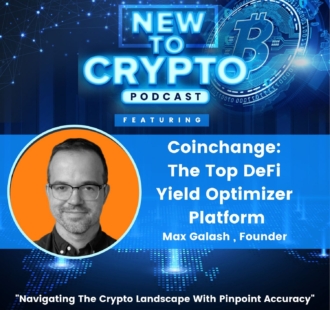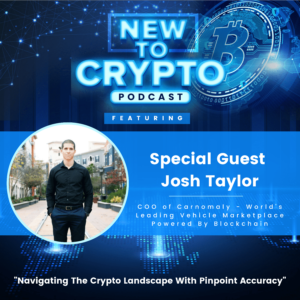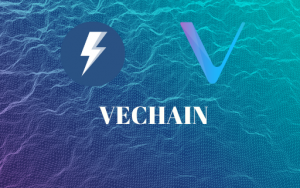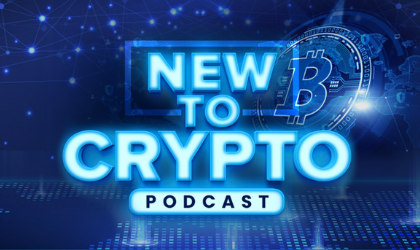SUMMARY KEYWORDS
crypto, coin, assets, yield, platform, customers, protocols, building, transactions, earn, money, bitcoin, market, year, easy, blockchain, product, pay, business, risk
SPEAKERS
Max, Michael
Michael 00:00
Welcome to the New To Crypto Podcast designed to guide you through the crypto landscape with pinpoint accuracy created for the new and intermediate crypto investor. Join your host Crypto Travels Michael as he takes you through the different facets of getting started and succeeding in your crypto journey. New To Crypto podcast brings you new episodes daily Monday through Friday with surprise bonus episodes sometimes on the weekend. Let me ask you, Are you new to crypto and don’t know where to start? Are you more experienced but have questions? Then you’re in the right place. This podcast is designed for you coming at you from the training center in the lifestyle design studio. Here’s your host Crypto Travels Michael. Hey, welcome to today’s podcast. I’m excited about today’s episode. I’m joined here by a leader in defy today I have the founder of coin change. And please welcome max to the interview Max Galash. Man. It’s a pleasure to have you here. Thanks for coming out.
Max 01:08
I Mike pleasures all mine a max.
Michael 01:11
Before we jump in, can you just tell our listeners a little bit about yourself?
Max 01:15
Yeah, I’ll start. Listen, thanks for having me, him. And Deva has been very controversial recently in the overall crypto space, right, and the winter has been upon us. So I’ve been in crypto for the better part of the last five years since 2017. Before that, I co-founded a professional services agency that was servicing and building apps for clients worldwide. Before that, I used to work for 3g capital. It’s a capital fund a public entity, and a public equity fund. Prior to that, I used to work at SAP consulting. It’s a consulting engineering firm out of Germany, prior to that, used to run a small venture fund called BGS ventures. And he used to work when I was at a school building a few applications and startups with my own out of that about five, this is my fifth startup one was sold, and three failed. So I’m 36 years old, you know, educated at the University of Toronto, I did my electrical and computer engineering degree there. And for the better part of the last 20 years, I’ve been in the tech business.
Michael 02:28
Thank you for sharing that background Max. It’s you’ve had quite a ride up to this point. And then we’re excited to talk about coining change today. You know, for our listeners that are not familiar, can you just give an overview as to what coin change is?
Max 02:46
Yeah, so coin change is a yield to optimize our platform. So if you want to earn on your assets, on a daily basis, with no lockups, right, you either transfer your USD or crypto and start earning right so we take care of the rest, we don’t lend your assets within the trade on your assets, we utilize the liquidity and the defy market. So we participate in the revenue of different protocols. You can say where like yield optimizer because you can go and do yield farming yourself and yield farming is the means of passive income in the defy space. When you provide your liquidity your coins to different protocols either lending them out or either providing liquidity to participate in the pool and get paid part of their revenue from the fees that they generate back to you right for that participation. So we optimize that we minimize the risk we maximize the earn, we have a risk framework in place we have compliance, and play with regulation. We follow all the possible reporting standards you know, we’re doing our financial and risk audits right now you can think about us as qualified for the easier for easier understanding probably for the regular person, you’ll think about us as your wealth management advisor and defi. So without you controlling your assets and trying to figure out how to earn eel in defy, you’ll trust a centralized counterparty like us to do that for you. So we have certain mechanics, and we have certain algorithms and platforms to optimize participation in the market. So that’s what we do, pretty much we create and optimize the yield and we pay you back on a daily basis, right? And those rewards and there are no lockups. We’ve been doing it for over a year. Right now we have about 45,000 retail customers. We have about 30 corporate customers with close to $50 million in the platform. We’ll call it AUM and so far so good you know it can read about our online on social media you know there’s no we haven’t really stopped doing our business through all this turmoil in the lending republication business because all you guys know is that Celsius moisture and many other practices participants into the lending world who were taking retail assets and then lend it out to another trader read and hedge funds to create yield for them got in trouble with a sharp decline of the assets because they didn’t take any collateral or they took the collateral that wasn’t enough to cover badly. So they had to file for bankruptcy because there’s a huge hole in their balance sheet, right? Because they mismanaged the risk, lending assets out to someone we have the other case, don’t lend assets, we create, and we optimize the yield ourselves through the platform that we have. And we’re always in control of the assets on-chain match. So it’s a very big difference between the two business models, even though it looks very similar on the surface that those guys were paying the yield on a daily basis, call it interest. They are more like banks. So they borrow from the customers, then they lend it away to the institutional players, right, or trade on their assets are the customers, right? wouldn’t do any of that, right? So we can think about more of that whilst management on defi. Right, so we take what’s still discretionary, so we take your assets, and we define and participate in those protocols, but we don’t lend them out and will not trade on them, we don’t really bat on the direction of the price of the coin, right. So there is no earning on the price differentiation of the acid. There’s only earning in the revenue participation of the protocol because protocols build the way that they connect peer to peer and charge a fee for that. But they have to have liquidity to exist. Right. So we participate in that liquidity.
Michael 06:38
Thanks for sharing that Max. That was actually enlightening to hear you share some of that, and I’m sure our listeners really, really appreciate that. Even the definition that you did early on when you were just speaking, you know, I want to get into how just a bird’s eye overview of how your yield program and product work. But before we dive into that, can you share with our listeners like your origin story of coin change? How did it come about, and you know, etcetera, paint tickets down that rabbit hole and paint a picture if you will.
Max 07:10
So from my personal perspective ride, I kind of caught that startup bug and the university when we first had to build up an app store for Asia like APAC, Asia. So like a clone of an app store. So pretty much compiling free links on the web and structuring them, in a way that users can search and listen for free music, right? And then throw the fun that we had, we did about 15 investments into the startups that were called VGS fund. I didn’t really want to come back to work for the SAP or fund or any other corporate environment. So I was kind of dedicated to following through with different ideas that I had, and or the people around me had. So we did one of the first startups I mean, that would it was also in the cannabis space. So in Canada and Canada, right? So in Toronto, um, and first of all, First Nation that really from g7 legalized the cannabis on the federal level. And before that happened, I mean, Trudeau was going to power and promising that that’s gonna be the big thing, right? A lot of people were betting on building their growing facilities. So as attack people, we decided to build a system that will enable seed to the sale so seed to sale platform that will enable you to track the seed purchases, the manufacturing, and the distribution, and we will actually get a license from Health Canada that made sure that this product can be utilized in the healthcare environment right to track from seed to sale. So nothing goes on the street pretty much written and nothing comes from the street. So that was one of the products that we did and sold before I started doing coinsurance. So I was kind of on a sabbatical after that product and I was buying some crypto myself through coin square. So coin Square was one of the earliest exchanges in Canada. And the experience was pretty cumbersome. So when I was buying I mean I didn’t I was mining large chunks, kind of OTC transactions with a broker on chat. You didn’t know the final price and then know the fee there was always a spread. There’s always a Forex spread by Canadian dollars. Everything’s benchmarked in the US so when I found out they actually charged me four or 5% on that transaction, I thought it listens it’s not the best experience that was in 2016. So it was not a 2017 Bull Run. That’s kind of why we thought it might be a better experience for the customer. So originally, the coin chain story started as this as an automated online brokerage. Right? That’s similar to what in essence if you know why is.com So TransferWise why is that calm? So those guys did to the cross border payments when they created the transparency and your Forex rate that you actually pay to move the money around the globe. opened, and he’s calculator experience. So that was the same thing. Let’s create transparency in the experience of buying and selling the crypto asset on any scale with the calculator online, right? So 2018, we kind of started, you know, the discovery, and then in 2019, we started building. In reality, I’m in late 2019, we’ve hired, and we were building a smart order router. So we hired a few kinds of quants, with a background in trading and algorithmic trading and the data. And right now this guy, still with a team, and he’s, he’s our Chief, Officer. So what’s up product officers, so managers, the full defi team that consists of about 20 people right now. So he had an idea pretty much saying, Listen to them in a while, why don’t we look into this device pays, though that only $50 million at the TBO. Right. So right now, even right now at this, at this cold market, it’s $70 billion. So when we started, it was $50 million. And so we started looking into that. And eventually, when we understood it was late 2019, or early 2020, I would say we were already data kind of not hard pivot, but we already knew that the product that we will introduce to the market will be the yield part. So d phi automated yield farming, right? The brokerage component of the platform is still there, I mean, you can still find the account was fit and buy and sell a crypto asset and swap crypto assets from one to the other, and off-ramp into the dollar. Right. So it’s an easy system to go from the dollar to the crypto dollar to the crypto very, very smooth, same-day transactions. But the core of the platform is yield borrowing yield generation right deal. We’re optimizing across bio blockchains 20 protocols. It’s the polls right now. So that’s how the story came in. And we thought, okay, the brokerage is a really hard business race to the bottom, there are so many vendors, we don’t want to compete there. And then they’ve been saturated. So early 2020, all the pretty target and user journey and go-to-market strategy were around the yield. And since then, we’ve been building it. And I would say we are probably about three years in so like, like late 2019. We already that team started to build up some data pipelines. So yeah, I would say that three years in the game. And now with the yield platform that we have right now, we’re probably one of the most sophisticated yield aggregators, and not aggregators, because we don’t really aggregate we optimize. So we will take on features of different protocols. And we optimize the yield on a risk-managed basis away, I think we’re one of the most advanced defy players in the world right now. Providing yield optimization experience for the customer. On a centralized basis. We’re not a protocol. So we’re still centralized.
Michael 12:47
Okay. And for our listeners, can you share like, so let’s say we have, you know, listener listening? And can you take them down the process of how simple it is to basically get started in your platform for like, retirement?
Max 13:02
Listen, it’s as easy as taking a selfie. So pretty much go online.
Michael 13:09
I’ve heard that on the show, I love
Max 13:12
going online and I’ll download the app, take a selfie, boom, provide peace of your ID, you’re in the system. And then if you have coins and coin base, or bitmax, you know, whatever exchange or wallet, you transfer some of them and start earning yield. That’s it the same day. But the USD transactions are a little hotter and you obviously have to do the ACH or wire to fund your account then you have to there’s a one-click investment when you move it from USD into the crypto world, right? So that’s why it’s not FDIC insured as an example right? I mean, even though you deposit dollar ism, and then those dollars are converted into a stablecoin and stablecoin is not really if he had currency backed by the FDIC insurance, right? So it’s some essence a representation of $1 by a corporation like Circle, right, that has certain reserves back so yeah, so it’s like as easy as taking a selfie you jump in, get it done, move to dollars, and you know, and in stable coin or $2 and Bitcoin value, no minimum, start earning yield and take it out next day, if you want it. No minimum, no walk up, pay no lockup.
Michael 14:12
So just try out your platform with a small amount, and they can take it out if they want, or they can leave. So you have that flexibility.
Max 14:21
Yeah, cuz I mean, obviously, the way that you know, the platform operates, I mean, there are 1000s of customers, right? So you do it on a pull basis. So there are in and out transactions and you do the net transaction only. So right, it’s not per client, it’s per net, right? So 1000s of customers will have $1 out now their salary moved to dollars and so you move 1000 bucks it but it’s very, very easy. So it’s made for like crypto admins, pretty much when we started our main market was USD like it was noncrypto, like if you’re if you know, you’ve tested the platform. I mean, it’s very, very easy to buy and sell and deposit right? So it’s really it’s not There is no order book, you don’t see any trading screens, and you don’t see any graphs on the yield graph. So it’s very simple. Like, like, it’s the why is that? Why is that a common experience? Right? When you go there, there’s a calculator and USD to Australian Dollar experience.
Michael 15:14
Excellent. Right. So that’s definitely a major benefit of coin change. I know you shared a few things earlier previously, but what are some other bullet points of major benefits of coin change that you would want our listeners to be mindful of? I
Max 15:29
would say, I would say that for the ones who are who know crypto, right? It’s the differences on-chain versus off-chain. So our assets are all on the chain. And we don’t give assets to a third party. Like even though I know, Mike, you’re a great trader, I won’t give you the assets of our customers. Yeah. 20% interest a year. Yeah, I didn’t know you did last year was great for you. Right? Yeah. Are you ready to put some collateral? I mean, we don’t do that. Right. So it’s not our business, right? So what we do is we provide that liquidity on the chain to uniswap our compound to other protocols, and then we’ll combine that with an in a smart way. So that’s a big difference from having assets on the chain under your control or with somebody else on the third party. So the second big difference is that we are actually going through audits right now we’re doing our financial audit was Grant Thornton, right? So we’re gonna publish it by the end of the year for the last three years’ financial audit, we’re also starting to do a risk assurance audit. So how do we quantify the risk or the protocol or the asset that we connect and then to interact with, right? So Esther Younker is going to do that? Probably q1, we’re going to publish that to the station as well. Okay, then going forward, we’ll do on the chain to stations between our assets and liabilities. So customers feel comfortable that we have the money on a chain that they deposit it? Yeah, so at least assets are equal to liabilities. So I think that’s why we are trying to be regulated. So we have this auditor. We have those audits going on, right, we talk to regulators, and we have, obviously reporting to FinCEN, FINTRAC, for money laundering, right? And any suspicious transactions? We do have our MTL licenses right now. In Progress. So money transmission licenses in the US, we have our National Bank National payment license in Poland, for Europe. Right. So I mean, we talk to regulators, we try to abide by the law, we try to get the licenses, we try to have a certain reporting to those regulators as well. Right. So it’s very important right now, especially after the back a lot of players like sell shoes, right? Unfortunately, to the industry, right, but it does affect everybody. So people are scared right now of any centralized deal no matter what. So we’ve been doing it from the very first day when we started, we knew that there are two pillars that we have to abide it regulation, transparency, and technology. Right? So it’s really hard to go hand in hand regulation of technology because sometimes it does interfere. Right? And quite often it does, because it’s always lagging. Yeah, regulation is always like technology. But at the same time, you can also do the basics right basics, like an audit doesn’t take much to do or you hire an external party to validate that what you say is true. And they get into your books and they validate. So we go by at least doing the minimum now to reassure our customers.
Michael 18:23
No, that’s important. I love the transparency and you know, the extra effort that you guys are making in that area. Max shared with us some things to come from coin change, you know, what do you guys have brewing for the rest of this year and beyond?
Max 18:40
A lot of things are happening right now. So a few of the things right now, when you look at the app a minute, it’s like, dumb, simple, right? You just have an account, you put the coins there and you start earning so you don’t see where the coins are going on? Or what is the strategies are using it? And how do we actually generate deals? So we’re going to start showing that and the app as well. So you can see where your allocation is, what strategies are using a user to generate that yield? Where those strategies are? So let’s say what blockchain protocol. So we’re gonna start adding that we’re gonna start doing the Transparency Report first, every month, right to our customers by email, obviously. But I think in about two months, we’ll have that in the application-level layer as well. Furthermore, I mean, we’re now we’re doing some cool things. Go there with a partner is called yield as a service. So that’s kind of a main go to market right now for us next year to launch to spread our product or partners to their clients. So let’s say as an example, Coinbase will integrate coin change earn product on their platform, and everybody will be able to use it. Right? So every customer of Coinbase will be able to deposit to Coinchange account on Coinbase platform, right? And we’ll do the revenue share with those guys obviously, right? So That’s pretty much the big undertaking is this yield as a service, we already have the API’s in place, we already have two beta integrations done with one new bank, and was one exchange. And we’re gonna take this product to market q1 Next year, and we call it the US yield as a service or product. This is a big one. So, any FinTech that has retail deposits on the platform, or not retail, any deposits on the platform, b2b or retail, right can introduce our product to them. Right and benefit from revenue share.
Michael 20:37
Interesting. I like that idea. And you’re rolling that out Q1.
Max 20:43
Yeah, yeah, it’s already in beta testing right now with a few customers. Right. So.
Michael 20:48
Okay. Max, what else would you like to share with our listeners?
Max 20:54
Yeah, I think there’s a lot of stigmas, you know, around crypto, then high-risk investment. And then I would say it’s a volatile investment. Right, obviously, right, if we consider risk equates to volatility. That’s true. But risks are not always correlated with volatility. Right. So I won’t say I won’t say that. If you do it smartly, you know, and you know, that you can afford a drawdown as we have right now. 50%, right of the asset value. And you’re not freaking out, I don’t have to sell your house to cover your bills. I mean, it’s not a really super risky investment, because we all know that the assets like Bitcoin, are highly adopted right now by institutional players, right? We know that Aetherium is going through a merger right now. And most likely, this is going to be a successful merger, when from proof of work or going to proof of stake, right, so we’re becoming greener, there’s more utility in the money, because what is money, by the way, I mean like money is just a representation of some kind of a value,
Michael 22:01
some kind of value exactly that. So it can be $1, in your note, a note in your pocket, it could be a coin, a gold coin, or,
Max 22:10
you know, I think it all has money has utility, right? It has utility value money that sits down doing nothing, you’re losing that utility losing that value. And what proof of stake does, it enables you to utilize that money that capital that you have, for some kind of return, right? So proof of stake you staking your coins to validate transactions, not only like the mechanics of it is doesn’t really have to be understood deeply. All it means is that you have your money, you provide your capital, and you’re getting paid for that utility of the capital that you provide, right? Either it’s proof of stake, or either it’s, it’s yield farming, right, but the money has value, there’s the time value of money, right? So a lot of people don’t understand that. That’s what banks do, right on a fractional basis and multiplying the leverage on the capital that they get it. But I think the proof of stake is a great, great example of innovation, you know, and how crypto can be adapt to the demands of the 21st century has been green, right? The energy prices, everybody knows inflation. Everybody knows. Russia had been building Europe when the guy went down to gas, everybody knows, right? So. So all those things are pretty much technology will solve, right? It just requires some time, but on the blockchain world, everything moves faster. Right. So and innovation happens faster. So proof of stake is a great example of that. Right? So adopting to, to the new environment, and new demands, banks still run on the big on all from servers, right that from the 70s and 80s. Yeah, and Aetherium has been able to pull out will be able to pull out such a massive change with the 10s of billions of dollars on chain real time, you know, becoming a different rail, right? So banks can do that. They can change that fast, and they can dab that fast and the new ecosystem, the new payment rails and new financial rails or the blockchain can Yeah, so I think that’s, you know, it’s people say it’s a high risk, it’s a super risk, it’s a risk when you go and just trust someone with your coins, your neighbor that or like somebody made on the Reddit and give them to trade near you know, yeah, this is high resolution, just stupid, right? Yeah. Or you hope buying some shitty coin has been promoted on the side that never comes to reality and you send in your PayPal payment for a future promise something. Yeah, that’s stupid. And then, overall, the space is becoming more mature. And there’s a lot of money that has been managed by institutions and players who understand the market and what we’re trying to do. I mean, in our case, right, I mean, when we started originally was taking Wall Street to the main street. So let everybody participate and earn right through the experience that we generate with this. Right, so Wall Street to the Main Street. I mean, it still stays the same. I mean, a lot of businesses don’t know how to do their cash management right properly. and they go through the banking, old rails, we provide new rails. That’s why we can pay more. Right? Because if I was, if I, first of all, it’s easy to lose your money is faster there. So they pay more for your capital because it moves faster, it generates more value. So then it moves 24/7. So yeah, and I think there’s a lot of misconceptions around crypto, you know, being super high risk or being it’s definitely it’s a spike in speculative asset, there’s no doubt. I mean, this is something that’s also needed on the market. People don’t want to work anymore. They want to just speculate. Right? They don’t want to go back to work. Look at everybody, like the employment rate is at its lowest wides doesn’t mean that everybody’s at work. I mean, it’s like people just out of the payroll system. They don’t want to be on the payroll anymore. They’re like, I know, they’ve been out on the payroll system for six months. And why go work for 12 bucks an hour, you know, you when you can, you can get whatever COVID checks and plus, do some Uber on the side, right? Then do some trading debate on the side, right? People don’t want to wait as well. I mean, these days, nobody wants to wait for 20 years, the wealth accumulates, right, especially younger, they’re willing to take a risk. So I think that I think that crypto is not going to die. I mean, there’s too much embedded, called culture right now. And the market tool for participants to come back when there’s
Michael 26:20
any institutions or are you know, slowly adopting and coming on board? Where do you you know, obviously the markets are down right now, how do you see you know, the market play out for the rest of this year and q1 of next year?
Max 26:33
Yeah, let’s no one has a crystal ball. Right? I mean, if I did, I won’t be I won’t be here right now. I’m just starting to relax and the Cayman Islands or something and my boat, but
Michael 26:44
you can go visit Raul Paul.
26:47
Yeah, but I mean, in reality, we’ll hope for right everybody I have a vested interest in crypto to be a successful industry, right, and come back as a as a unpacked market. Right. So everybody was hoping that Bitcoin has been unpacked from the equity markets, right, but it’s still kind of correlated was high-risk assets. So I don’t know, I’m in
Michael 27:09
that new asset class, you know, like, it’s, you know, we’re what, 10 just over 10 years in, you know, so from that standpoint, I think it’s doing fantastic. You know, yeah, yeah. From you such. I mean, if you look at Gold being around precious metals, literally 1000s of years, you know, yeah.
Max 27:28
And yeah, yeah. And I mean, if you’re gonna bear the last 12 months across the s&p and Bitcoin, and then this Bitcoin, I think, done better as well, even though right now, I think, anyways, future I mean, what the future holds, I think, definitely a lot of unknowns, you know, what this global macro environment right now is Russia was Taiwan, you know? And as Argentina as well, right? Is Turkey having crazy inflation as well? So there’s so much happening right now that anything can just trickle the fact of the world economy, but I think it’s kind of better for digital, not really relying too much on, you know, are
Michael 28:12
looking more than, you know, they’re definitely looking at the warranty. Right? Yeah,
Max 28:17
like a veil that I have my, my, my whatever, $10,000 in
Michael 28:21
the local one’s permissionless you know, I send you
28:24
around easy, you know, nobody
Michael 28:26
from two different countries. Yeah,
Max 28:29
I mean, you’re Yeah, so we’re like, the payments are easy, can move around easily. Nobody can take it from me easily. Yeah. Well, there’s a lot of utility in that for sure. I think it’s it’s a pretty resilient asset class, it’s not gonna go anywhere, just the likelihood it will be affected by men the interest I mean, if they’re gonna start doing you know, QE again, I mean, everything is back to the party, even though the wall and likely, likely, I hope it will, will still be around the same or better level of a bitcoin price than it is right now, a lot of it depends on the bitcoin price, unfortunately, even though defy is kind of on its own. Because those applications are pretty resilient right now. uniswap, I think is a neuron to make a billion dollars in revenue this year. Right? All those applications are decentralized. So peer to peer. They all earn because of the fees that they charge. And they have very few old backs. They don’t run any servers, because they’re only theorem bases or Avalanche or whatever. Yeah, watching so they don’t have they go back to keep on servers going and they pay developers in their own token governance. So it’s a very, very proper incentive structure and lightweight businesses that are very resilient. Yeah, I don’t think defi is gonna go anywhere, but unfortunately, the overall market depends on the price of the Bitcoin. Right, and the sentiment on that so yeah, I think I think is going to be okay.
Michael 30:01
Okay, fantastic Max. In closing, how can our listeners reach out to you and your team? If they you know if they have questions or want to stay in the conversation with you and coin chains?
Max 30:10
Yeah, I think it’s, you know, it’s easy. I have a Twitter, right so you guys can find me there, Max and Gaulish right on Twitter. So Max College, Max college at Twitter. Well,
Michael 30:20
on the episode Blog Post page, direct links.
Max 30:23
Yeah. And then the website coin change.io. and we have most of the team is there and then please the guys who want to talk to him and ask questions if you have anything so or just email me CEO at coin change.io
Michael 30:36
CEO at coin change.io Well said, Max, man, it was a pleasure to have you on the show. And thanks for dropping by. Likewise. Thanks, man. Appreciate Hey, you’re welcome back anytime and have a great day over there.
30:48
Thanks a lot. Bye, guys.
Michael 30:52
Thanks for tuning in to new to crypto podcast. If you liked the episode, be sure to follow and subscribe. You can listen to every episode on all major platforms have an interest in being on the show or one advertising reach out at new to crypto.io. Head over to our site newtocrypto.io to access the resources mentioned in each episode. Until next time, remember to navigate the crypto landscape with pinpoint accuracy.
